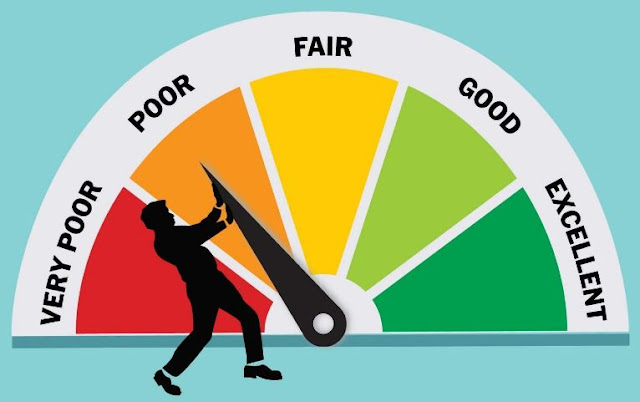
Understanding the essence of this concept and its potential is significant for borrowers. There are numerous steps to take beforehand to ensure a better deal. There are shortcuts to improving your eligibility as well. By thinking long-term and gradually boosting your rating, you will be eligible for any consumer loan.
The helpful advice found below will pave your way to negotiating favorable terms on loans and credit scores.
Factors That Affect The Score
Credit scores are affected by various factors, which indicate the ability of borrowers to pay and whether they can be trusted with a loan. These scores are calculated by credit bureaus and banks, which use the information about users. While the factors taken into consideration are many, the most important ones are debt, income, payment history, and age.
Moreover, your payment history speaks volumes about your previous consumption of credits, debt collection, payment remarks, and incurred reminders. It also informs lenders about your history of paying bills on time. Frequent relocation is considered negative, as it indicates income instability.
The place where you live is another important factor, as the ability of borrowers to pay installments is influenced by their living expenses. For instance, living in Oslo is costlier than living in Hamar. Another overlooked factor is the affiliation with organizations and companies. Assuming you are a co-owner or board member of a company with a low credit score, this will affect your personal score too.
Furthermore, your financial rating is of vital importance for consumer loans, as it not only influences the approval process by also the provided interest terms. While poor credit scores may lead to rejected applications, most individuals have sufficiently good scores to get approval. People whose scores are low get worse interest terms than those whose scores are high.
The effect interest terms have on consumer loan cost is major. Nominal interest rates can be approximately 7% on the low end of the spectrum and 20% on the high end. It’s of the utmost importance to sammenlign forbrukslån before signing one. The terms you’ll be offered depend on how late you are with the bills, whether you owe money to credit companies, and your life in general.
Take Action Beforehand
By getting to know the factors that influence credit scores, you can take action to improve yours. The higher your rating, the better the chance for getting favorable interest terms. Getting rid of small debts is the first action to take. For instance, if you have a few more installments left to pay on loan or owe an affordable sum to a credit card company, you should eliminate these small debts before submitting documents for a new one.
Another thing to inform yourself about is the presence of any recent increases in income. Credit information companies aren’t always up-to-date with this info. Such increases in income might come from a hobby business or renting out a home. These incomes have a positive influence on scores, provided they are documented. Social security benefits are classified as income too.
Think Long-Term
Another action to take is thinking long-term about your payment history. If hoping for better interest terms, you should cover your utility bills regularly and continue in the same direction for years. It doesn’t take too much time to make improvements, as banks appreciate when individuals make positive changes.
In addition, individuals who are diligent about their payment history get better interest rates not only on consumer loans but mortgages and car loans too. By not paying attention to your payment history, negative consequences will affect other aspects of life besides banks’ operations. Nowadays, many Norwegians experience struggles to get a mobile subscription because of lousy credit scores.
Consider Other Measures
Loan seekers usually need the money very quickly. Hence, most of them have neither energy nor time to improve their credit ratings. There are, however, many opportunities for getting better interest terms that apply to people with both good and bad scores. For instance, the borrowing process can be conducted with either a cohabitant or spouse. Visit this webpage for useful info on co-borrowers and liability.
The role of co-borrowers is to improve the likelihood of having the loan granted. Nevertheless, you should decide how tax deduction for a debt interest is going to be distributed. You and your co-borrower will share the responsibility of paying back the installments.
Limit Your New Credit Requests
Two types of inquiries can be made into one’s credit history, known as soft and hard inquiries. Soft inquiries involve checking your own score or giving permission to your employer to check it. Such checks can also be performed by financial institutions and credit card companies. These inquiries will not have any adverse effect on your rating.
Hard inquiries include mortgage, auto loan, or credit card applications. If any of these are performed in the short term, they can cause score damage. Banks could interpret these inquiries as a sign of coping with financial difficulties, which means greater risk. Therefore, you must avoid applying for new loans for at least a while.
Keep Your Old Accounts Open
The age-of-credit aspect of your score is focused on how long your credit accounts have been open. The older your credit age, the more appealing you seem to lenders. If you have old accounts, don’t close them. Although the history of these accounts would remain on your report, closing them would cost you a few points off your score.
Anyhow, collection accounts and charge-offs should be resolved by getting caught up with missed payments and creating a plan to handle future payments. Negative account info and bankruptcies can remain on your history for ten years.
Final Thoughts - Credit Conclusion
Work on your rating continuously instead of expecting miracles at the last minute. Your financial health is vital to banks and other lenders! Keep monitoring and improving your credit score to get favorable conditions on consumer loans you can leverage.

